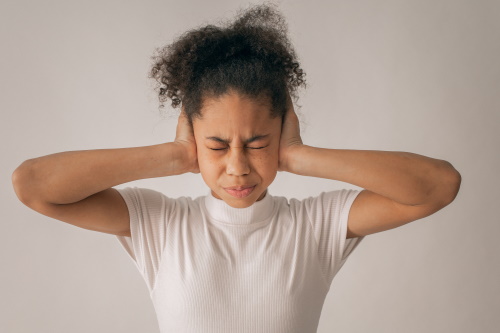Dealing with adolescent anxiety can feel overwhelming for many parents. About one in every three teenagers has an anxiety disorder. Fortunately, when parents know and understand the anxiety, they can provide guidance and help that can help their children cope better with their mental health. Here are some suggestions from Chris Darling to keep in mind.

Image via Pexels
Recognize the Signs of Anxiety
Kids are under a lot of pressure. They live in a culture of achievement, despite the world becoming increasingly intimidating. Additionally, social media tends to poorly impact kids’ mental health because it can damage their self-esteem. You can tell your kid may be struggling with anxiety by looking for the signs, including:
- Inability to sleep
- Poor academic performance
- Unhealthy habits
- Less socializing
- Anxiety and panic attacks
Sometimes, you’ll witness your kids changing out of nowhere. A kid that may have loved to socialize before may suddenly feel anxious when with friends and seek withdrawal instead. Once you can see your child’s anxiety for yourself, you must react accordingly. Respect the fact that they feel anxious but do not empower those feelings.
In fact, not everything that elicits anxiety should be avoided. Working through something that elicits anxiety can be part of the pathway to managing it and growing from it. Experiencing something in full can help eliminate the mystery and associated fear and anxiety from it. This doesn’t mean that your child should be forced, but offer strong support instead.
Make Yourself Available
With the time you have, work on your kids’ self-esteem. Be careful not to overpraise children. When you overpraise, kids may overwork themselves or focus too much on perfection. Instead, encourage kids to pursue their interests and take small risks.
Be your kids’ healthy role models. A healthy lifestyle can help both of you in the fight against anxiety. Physical exercise reduces stress, minimizes fatigue and produces endorphins in everyone, including your kids. While you can attend exercise classes with your kid, you can also go for hikes or bike around your neighborhood as a way to stay active.
Work to make home a healthy, relaxing environment. You want your child to feel safe and protected. Try decluttering and adding some indoor plants and natural light. Even these small changes can have an outsized effect on the way your home feels.
If you fear not having enough time, you may want to find a new job or start a new career if your job is too stressful. Show your kid that you can defeat feelings of fear and anxiety by beginning something new and building positive experiences.
Help your children find mental health support if they suffer overwhelming feelings because of stress and anxiety. You can access mental health services virtually, whereas online therapy is private, secure and more convenient. Additionally, it is less of a commitment than in-person therapy. If you choose an online therapist, you have a wide variety of licensed professionals. Additionally, you save money on travel and pay less for care. Most therapists offer a complimentary consultation.
Explore Coping Mechanisms
Experts claim extracurricular activities can help kids manage their anxiety while adding to their hobbies list. Kids who participate in extracurricular activities tend to have more self-esteem, resilience and understand how to communicate with others in their social group.
One extracurricular activity to encourage is sports. It can be any sport that your child enjoys or shows interest in. Kids who play sports tend to have better social skills and a clear understanding of the importance of teamwork. Your kids learn how to deal with adversity, like anxiety, better because they understand that hard work has good outcomes.
If your kid is interested in reading, try encouraging more of that behavior. Kids who actively read tend to have less stress. Children who read tend to have an easier time sleeping at night and have fewer symptoms of depression.
Anxiety affects a lot of adolescents nowadays. Understanding how to help your kids cope can lower the rate and help them learn to manage it with fewer symptoms.